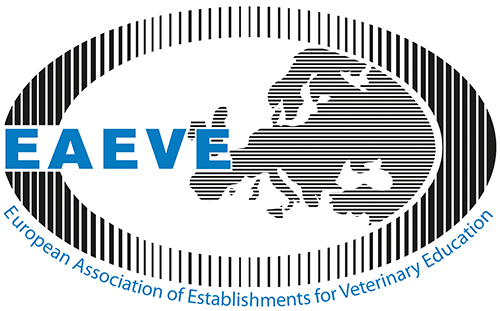

The master's degree study programme VETERINARY HYGIENE AND ECOLOGY prepares students for the profession of veterinarian with a core focus on the health and hygiene of food and raw materials of animal origin, veterinary ecology and infectious diseases of animals and epizootiology related to food and raw materials of animal origin.
Graduates of the master's degree study programme VETERINARY HYGIENE AND ECOLOGY obtain the qualification of a veterinarian with differentiation into field of veterinary public health protection, focusing mainly on health and hygiene safety of food and raw materials of animal origin, veterinary ecology and infectious diseases and epizootiology related to food and animal raw materials origin.
Students who have a full secondary education ended with a high school diploma and demonstrate the necessary competence for this study, can apply to study in the master's degree study programme. The necessary competence for master's studies is demonstrated by the results of studies at secondary school, as well as the result of the entrance exam, and activities beyond the basic secondary school studies (competitions, professional work, etc.) will also be taken into account. Master's degree students become applicants on the day of enrollment. The study is ceremoniously started with the student's promise during matriculation.
The master's degree study programme VETERINARY HYGIENE AND ECOLOGY is six years long. The basic forms of teaching are lectures, practical exercises, seminars, consultations, teaching in agricultural and food companies and institutions, individual internships and internships of students with private veterinarians. Furthermore, independent professional work at the institutes and special-purpose facilities of the faculty and university, as well as independent study. Emphasis is placed on practical teaching aimed at acquiring the student's practical skills. Study success is checked continuously during the semester, at the end of the semester by credit and at the end of the study of the subject by an exam.
The student can process and defend a rigorous thesis in one of the partial rigorous exams.
According to the possibilities of the university, the students of the faculty are accommodated in university dormitories, where it is possible to eat. There is a Central Library on the university campus, where you can find a study room for students with the possibility of borrowing professional literature, gaining expertise from world databases in the field of veterinary medicine, food hygiene and technology or animal welfare in a computer room with Internet connection. Furthermore, students can use the private room for learning or relax zone.
Graduation
Graduates of the master's degree study programme VETERINARY HYGIENE AND ECOLOGY become students after passing the state rigorous examination. These graduates are issued a diploma with a certificate of state rigorous examination and are awarded the title of "Doctor of Veterinary Medicine" in the abbreviation "MVDr." before the name. The study is ceremoniously concluded with a doctoral promise at graduation.
